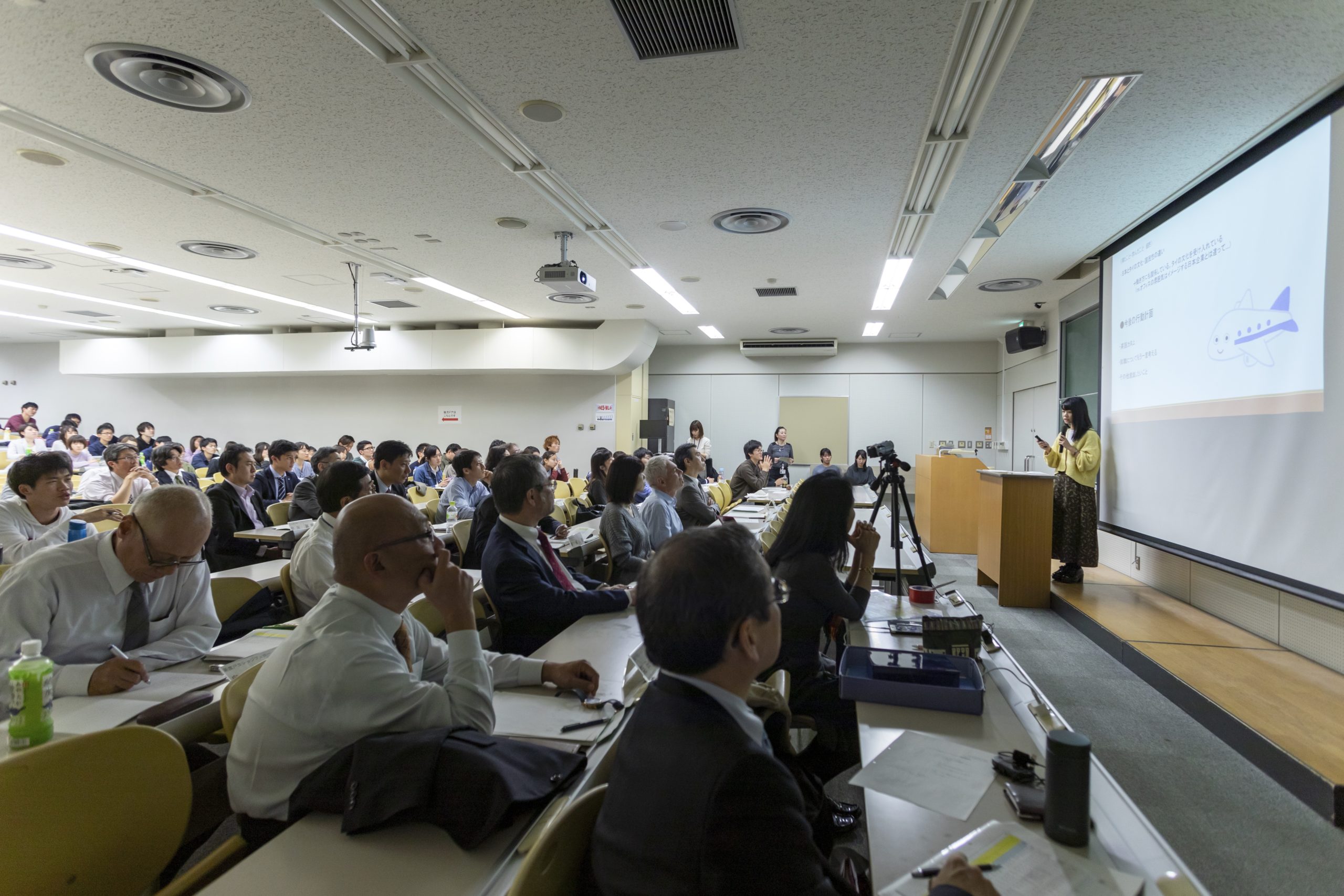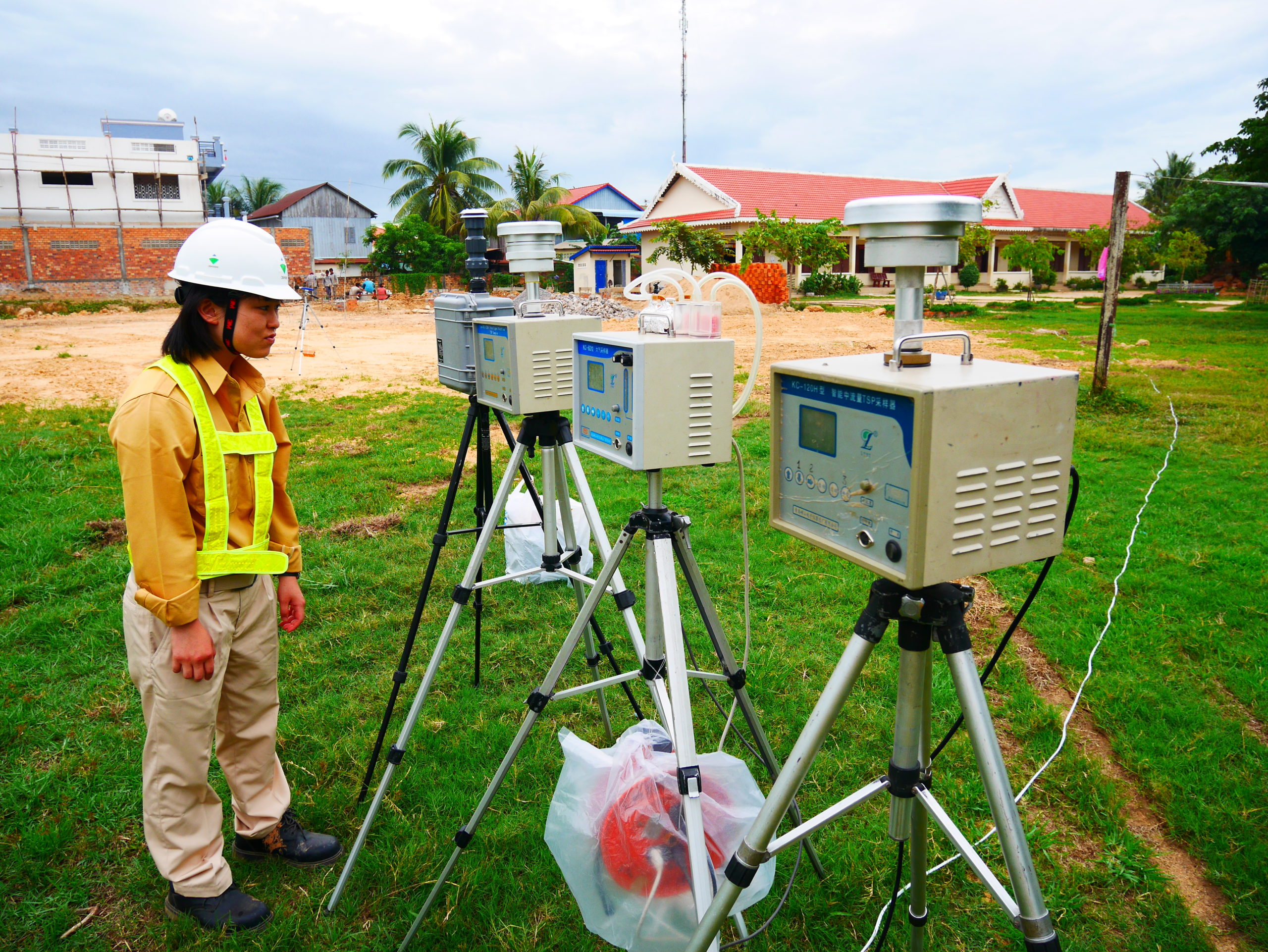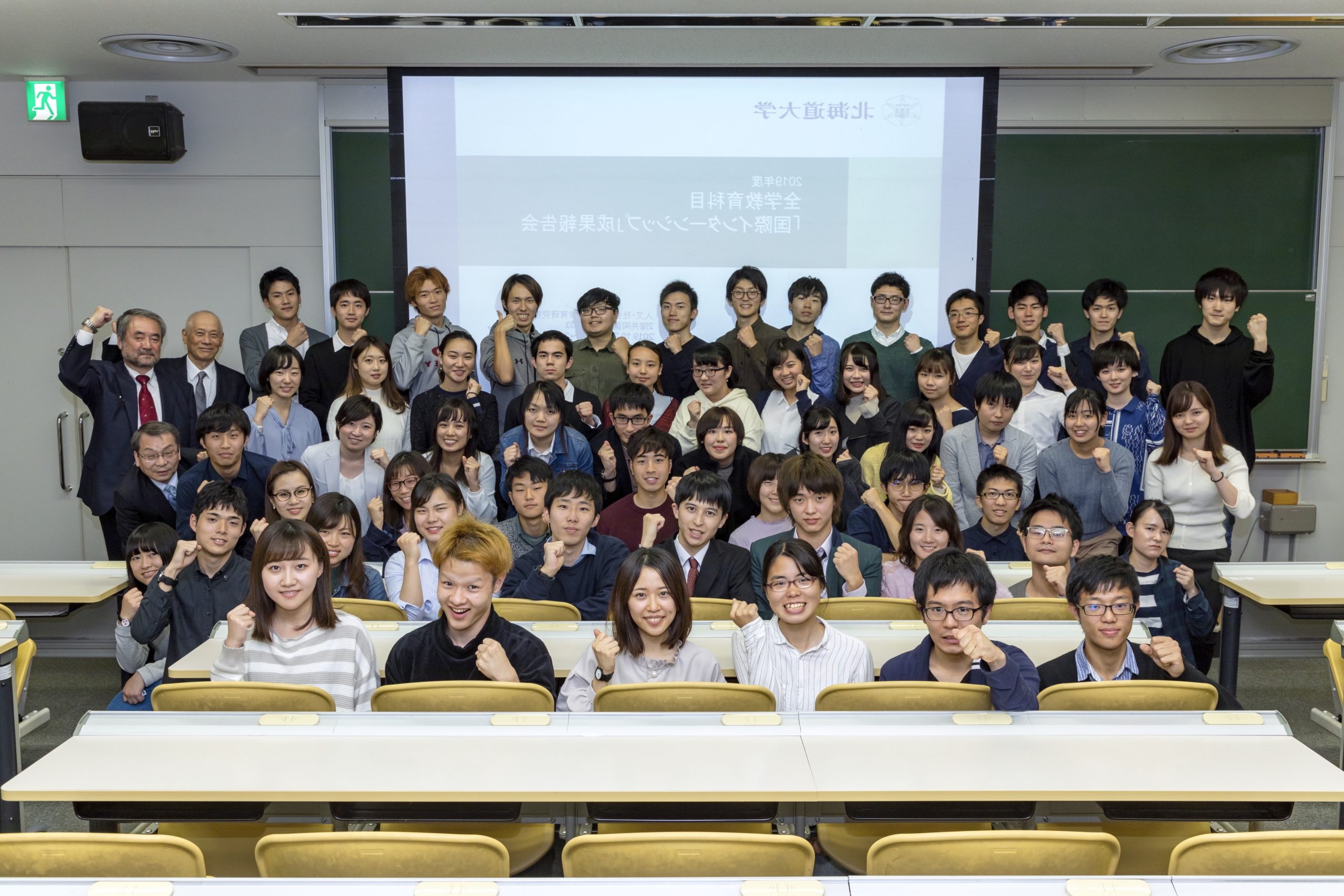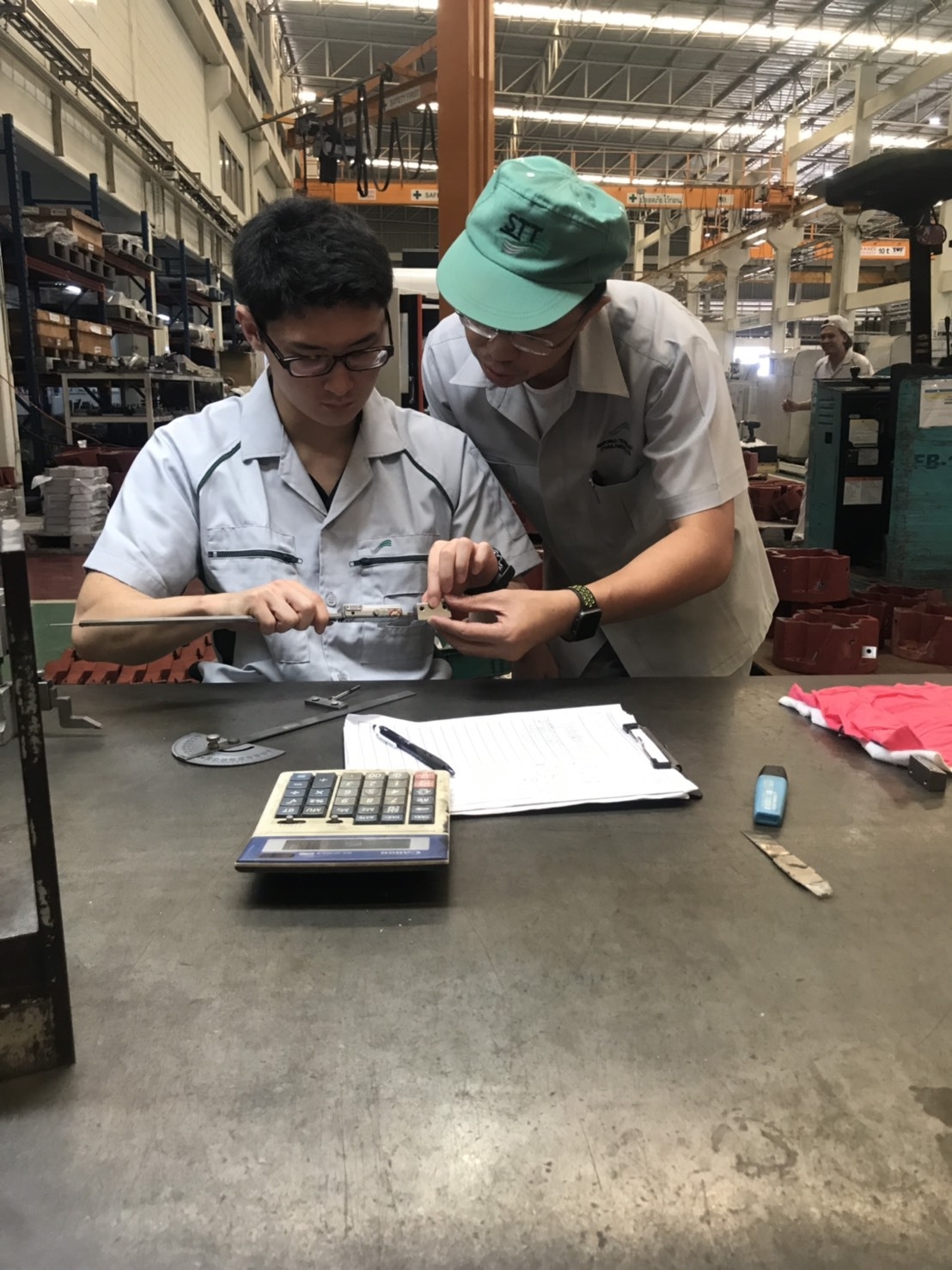International Internship Program: Practical Career Education
University News | April 14, 2021
This article was published in the Spring 2020 issue of Litterae Populi. The full list of articles can be found here.
A custom-made education program developed in an attempt to “run after two hares” by combining the dispatch of students overseas with internships. By making the most of the alumni network, the program has grown to foster human resources capable of playing active roles around the world.
In 2016, a new education program was introduced as a result of opinion exchanges between the university and the Hokkaido University Federation of Alumni Association (predecessor of the Hokkaido University Elm Alumni Association). This is an “international internship” program in which students engage in internships for several weeks at the overseas locations of companies and other organizations. This program aims to nurture a high level of professional awareness by enabling students to experience jobs related to their specialties and future career paths as well as to acquire a cosmopolitan outlook and leadership skills in different societies and cultures. Training at overseas locations is provided to undergraduate students in their second and third years and to master’s students for two to six weeks during the summer holiday. The number of participating students, which was four (3 locations in 3 countries) in the first year in AY 2016, steadily increased to 19 (14 locations in 7 countries) in AY 2017, 50 (39 locations in 10 countries) in AY 2018 and 73 (49 locations in 14 countries) in AY 2019. The types of business students engage in at overseas locations vary widely, including manufacturing, wholesale/retail, information, consulting, logistics, finance and trading.
Support by alumni
Alumni play an important role in the implementation of the program. Vice President Junji Yamaguchi, who is in charge of the program, says, “Many of the accepting destinations are global companies and organizations where alumni of the university are members of top management, and the ties among alumni serve to support the program. The program has further expanded and improved in recent years through the alumni network. Alumni are involved in not only finding accepting destinations but also matching between the destinations and students and providing guidance for students. The existence of the program is only possible with the tremendous support received from alumni.” The custom-made program was established in cooperation with many alumni, including Visiting Professor Shuhei Inoue who is mainly in charge of finding new acceptance destinations. Although it is a very demanding task to develop plans suited to individual students, countries and companies, know-how has been accumulated and the organic link between the university and alumni is becoming stronger.

Presentation at the meeting to report the results of international internships. The meeting was attended by approximately 200 participants, including teachers and students of the university, as well as those from cooperating companies and high school students.
Evolving “training” programs
Briefing sessions are held by inviting students twice between January and April. Explanations are given on the destinations, period, content of training, acceptance conditions, expenses and other details, and applications are accepted at these sessions. Then, after the screening of documents and interviews, successful candidates are matched with accepting destinations. Acceptance was limited to students of Nitobe College in AY 2016, but has been expanded to all students of the target years since AY 2017. “As there are many excellent students at Hokkaido University, whether they are part of Nitobe College or not, we want to give everyone an opportunity to apply for the program,” says Vice President Yamaguchi. Overseas locations that had only been in Asian countries were expanded from just Asian countries to include Finland, Hungary, Australia and Canada in AY 2019, enabling the global-scale provision of diverse programs for students of all twelve undergraduate schools.
Five classes on attitude toward training, corporate research, manners during training, local research and safety education are given between May and July before overseas training. In these classes, students learn the needs of accepting destinations, such as the meaning of accepting trainees for companies and other workplaces and what is expected from trainees, as well as basic knowledge about destination countries, such as their history and relationship with Japan, and potential overseas risks. In the fifth class, students are interviewed individually to confirm their goals and preparation status. Thorough preliminary education is provided to dispatch the students as representatives of the university.
In overseas training, programs based on actual corporate activities are provided with a focus on “assignment setting/solution proposal,” “observation, activity experience and problem identification,” “provision at manufacturing sites” and other patterns. Teachers do not accompany the students, making it a true on-the-job “training” experience where problem-solving and self- management abilities that students have acquired are tested in an environment with a different language and culture.
After overseas training, a meeting to report the results of these international internships is held for students to report on their respective learning and work experiences. Many students have said, “finishing the overseas internship gave me increased confidence” or “the experience was highly valuable for my future.” Because they have survived in an environment totally different from their own, the feeling of accomplishment is all the more remarkable.
To achieve new heights
During the growth of the program, through repeated trial and error, challenges in the management aspect have been revealed. One is risk management for students, which is a major issue especially in areas without sufficient overseas support networks. “We are constantly aware of safety and measures to take when something actually happens,” says Professor Inoue. It will be necessary to strengthen the flexible support system to keep up with the rapidly changing international situation.

Environmental measurement in the surrounding area of a construction site (Obayashi Corporation, Cambodia).
Another challenge is the reduction of financial burden on students. At present, all participants can receive scholarship support from the Hokkaido University Alumni Association and, if they meet the requirements, other scholarships and aid for travel expenses. However, enormous financial burdens may be imposed on students depending on the period and destination of travel, thereby making more substantial financial support necessary.
“There are still problems to solve, but this international internship is an education program that will definitely be a major feature of Hokkaido University. I want students to improve themselves by taking advantage of this program,” says Vice President Yamaguchi. This program that has grown thanks to the cooperation of the alumni at its core is training talented professionals who will one day play active roles in the international field.
This article was published in the Spring 2020 issue of Litterae Populi. The full list of articles can be found here.


